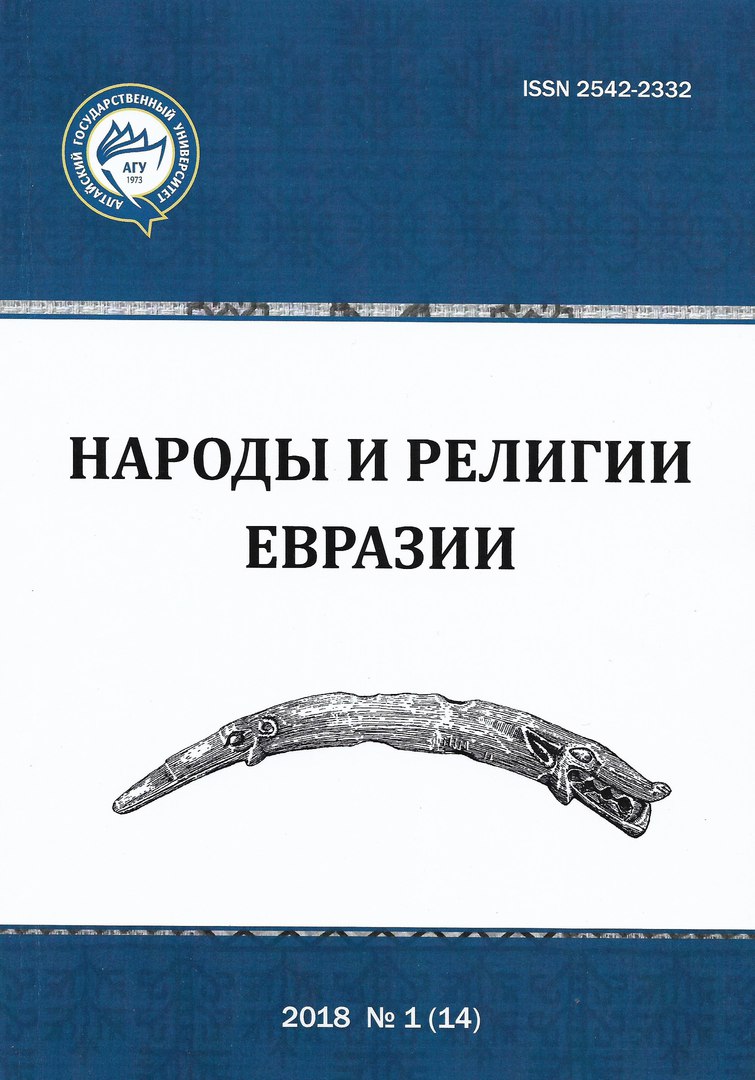Peculiarities of the national-cultural policy of belarusization (psychological aspect)
Main Article Content
Abstract
The author considers the psychological aspect of the broad problem of Belarusian politics. Modern Belarusian historical science rejected the position of a straightforward assertion that belorussization, like ukrainization, was planned in advance to reveal the best forces of these peoples and then bring down massive repression on them. Everything was more complicated. Inside the country there were both ardent supporters and enthusiasts of the Belarusian revival, as well as those who provided both active and passive resistance to its conduct.
National differentiation between town and country didn't contribute to the success of the policy of Belarusization and contributed to the specificity in the language situation — a city that speaks Russian and a village that speaks Belarusian. A significant part of Belarusian officials denationalized and avoided using Belarusian language, betraying his oblivion as the language <peasant>. The announcement of the Belarusian language as the state language and demands for his knowledge and use of it caused resistance of Russified part of the bureaucracy. Unfortunately, the spirit of campaigning soared in the atmosphere of those years and even a peasant could smell it, who due to centuries of colonial policy had passive rejection of all that is somehow related to the Belarusian language.
Downloads
Metrics
Article Details
References
Баранова Е. В. Пичета В. И. и власть в 1920-е гг.// Российские и славянские исследования: научн. сб. / редкол. А. П. Сальков, О. А. Яновский (отв.ред.) [и др.]. Минск, 2009. Вып. 4. С. 178-186.
Борисенок Ю. А. Белорусизация 1920-х годов: предыстория // Вопросы истории. 2006. № 6. С. 111-117.
Василевская М. С. Листая журналы 20-х (о культурном строительстве в республике) // Политический собеседник. 1989. № 11. С. 25-26.
Государственный архив Витебской области (ГАВО). Ф. 10050.
ГАВО. Ф. 10062.
Ершова Э. Б. Алгоритм развития культуры Беларуси в 20-е гг. ХХ в. // Институт белорусской культуры и становление науки в Беларуси: к 90-летию создания института белорусской культуры : материалы Международной научной конференции. Минск, 8-9 декабря 2011 г. Минск, 2012. С. 527-535.
Кароль А. И. Беларуазацыя — палгтыка нацыянальнага адраджэння // Крыжовы шлях. Мшск, 1993. С. 118-164.
Лозицький В. С. Полипка украш1зацп в 20-30-х рр.: 1стор1я, проблемы, урок // Укр. 1стор1чны журнал. 1989. № 3. С. 16-20.
Национальный архив Республики Беларусь (НАРБ). Ф. 4.
Ненароков А. П. Из опыта национально-языковой политики первых лет Советской власти // История СССР. 1990. № 2. С. 2-14.
Шчэта В. I. Беларуская мова як фактар нацыянальна-культурны. Минск, 1923. 35 с.
Платонов Р. П. Лесы: Псторыка-дакументальныя нарысы аб людзях малавядомых падзеях духоунага жыцця у Беларуа 20-30-х гг. Мшск, 1998. 326 с.
Сухоцкая С. Ю. Образование на Витебщине в 1920-х гг.: национальный аспект // Адукацыя на Вщебшчыне: псторыя i сучаснасць: матэрыялы рэспублжанскай навук. — практыч.канф., Вщебск, 30-31 сакавжа 2010 г. / рэдкал.: У Акуневiч [i шш.]. Вiцебск: ВДУ iмя П. М. Машэрава, 2010. С. 124-128.

